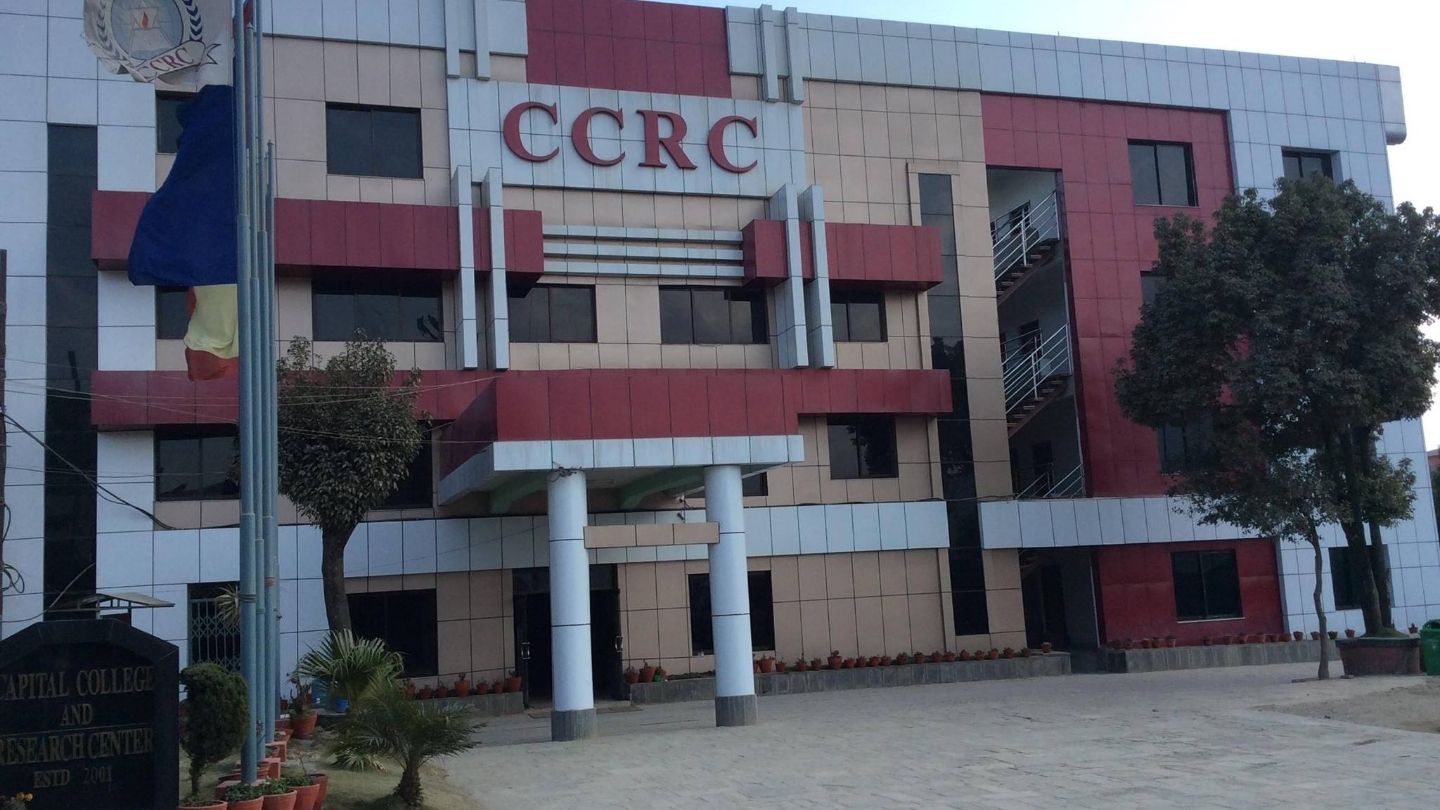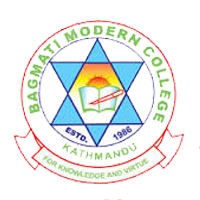Overview
Ten Plus Two (+2) Management at Capital College and Research Center (CCRC), Koteshwor, Kathmandu
Ten Plus Two (+2) Management at CCRC College Kathmandu is an NEB-affiliated program for Grade XI and Grade XII. The stream serves students who plan for BBA, BBM, BBS, BIM, BHM, CA pathway studies, Travel and Tourism, and allied fields.
You will find clear details here on the syllabus, admission, entrance exam, internal assessment, scholarships, and support services at CCRC.

Overview
CCRC runs NEB (+2) Management in two years with five subjects each year. The stream builds a strong base in accounting, economics, business studies, hotel management, travel and tourism, business mathematics, computer science, and finance. Classes run in morning and day shifts.
Students study through classroom sessions, project work where applicable, computer-lab access, library reading, and structured internal tests.
You study in a disciplined setting. Teachers track progress through weekly/terminal exams and a pre-board in Grade XII.
Counseling covers subject selection, bachelor program mapping, and personal support when needed. Hostel and transportation options help students who live away from home or commute across the Valley.
Highlights
-
Affiliation: National Examination Board (NEB), Nepal
-
Levels: Grade XI and Grade XII (+2 Management)
-
Location: Koteshwor, Kathmandu (near Balkumari Bridge)
-
Shifts: Morning (6:25 AM) and Day (10:25 AM)
-
Subject Pool: Principles of Accounting I/II, Economics, Business Studies, Marketing, Business Mathematics, Computer Science, Hotel Management, Travel and Tourism, Finance, Basic Mathematics, English, Nepali
-
Facilities: Computer lab, library, cafeteria, separate hostels, transportation within the Valley
-
Support: Academic and career counseling, personal/clinical counseling, abroad study guidance
-
Discipline: Classroom mobile-use restriction and locker provision by request
Curriculum Details
Grade XI (five subjects)
-
Compulsory: English, Nepali, Principles of Accounting I
-
Optional (any three): Marketing / Business Mathematics, Hotel Management, Travel and Tourism, Computer Science, Economics, Finance, Business Studies, Basic Mathematics
Grade XII (five subjects)
-
Compulsory: English, Principles of Accounting II
-
Optional (any two): Hotel Management, Travel and Tourism, Computer Science, Economics, Finance, Business Studies, Basic Mathematics
Practical and Project Components
-
Computer Science involves lab hours and hands-on tasks.
-
Hotel Management and Travel and Tourism include practical assignments, menu planning or itinerary tasks, and short presentations where applicable.
-
Business Studies and Economics include case-based questions, data reading, and written analyses.
-
Accounting runs regular problem sets covering journal entries, ledgers, trial balance, financial statements, cost topics, and decision scenarios.
Internal Assessment and Exams
-
Weekly/terminal tests across subjects track retention and accuracy.
-
Pre-board examination in Grade XII simulates NEB timing and structure.
-
Remedial support follows test analysis so you can target weak areas ahead of board exams.
Objectives
-
Build a strong foundation in accounting, economics, and business operations.
-
Develop fluency in financial statements, costing ideas, and basic decision tools.
-
Strengthen applied skills in hospitality or travel where selected.
-
Encourage confident reading of charts, tables, and business news relevant to coursework.
-
Guide students toward bachelor-level choices with a clear subject map.
Scope
Students from (+2) Management pursue bachelor programs across Nepal and abroad:
-
Business and Management: BBA, BBM, BBS, BIM, BPA
-
Hospitality and Tourism: BHM, BTTM
-
Accounting and Finance: CA route, ACCA foundations (as per external body rules), Finance and Banking
-
Information Systems: BIM or BSc CSIT (subject to entry criteria and bridging where required)
-
Economics and Social Sciences: BA in Economics or combined programs that value quantitative and writing skills
The stream also suits students who plan to blend business knowledge with computing, hospitality, or tourism.
Learning Outcomes
Students who complete the program are expected to:
-
Prepare basic financial statements and handle core bookkeeping cycles.
-
Solve accounting problems under time constraints using correct formats and workings.
-
Explain demand–supply shifts, market structures, and national income basics in clear terms.
-
Compare business functions—HR, finance, operations, marketing—using real examples.
-
Draft short reports, business memos, menus or itineraries (where relevant), and concise presentations.
-
Apply spreadsheets and basic software tools to organize data and build simple models.
-
Plan study routines, sit for internal tests with calm focus, and adjust strategies after feedback.
Skill Development Modules
-
Numerical Accuracy: Daily problem sets in accounting and business math.
-
Business Writing: Summaries, memos, and report outlines that use clear headings and short paragraphs.
-
Digital Literacy: Spreadsheet skills, basic formulas, formatting, and charting for assignments.
-
Case Reading: Short prompts using local business contexts; students identify issues and suggest steps.
-
Communication: Group discussions, role-play for service interactions in hospitality, and class presentations.
-
Time Planning: Weekly study maps that balance practice, reading, and rest days during exam periods.
Teaching Methodology
-
Classroom Sessions: Concept teaching, worked examples, and guided practice.
-
Lab Access: Computer lab slots for Computer Science and assignment work.
-
Assessment Cycle: Weekly/terminal exams and a pre-board; feedback meetings after each major test.
-
Counseling: Academic and career counseling for stream choices, bachelor options, and application planning.
-
Library Support: Textbooks, reference works, journals, newspapers, and selected e-resources for coursework and reading.
Admission Requirements
Eligibility (session-specific; verify current circular)
-
GPA: Recent college notices for Management reference a minimum GPA of 2.0.
-
Subject-wise grades: Recent guidance has referenced D+ in all subjects in some sessions.
-
Documentation: SEE grade sheet (internet print for interview), recent photographs, and any documents cited in the admission call.
-
Applicant pool: The college admits regular SEE students from the current year as per policy for the session.
Application, Entrance, and Interview
-
Application Modes:
-
Physical form from the college front desk; submit with two photographs.
-
Online form submission; visit the college at least one day before the entrance exam to collect the admit card and symbol number (two photographs).
-
-
Entrance Exam: Stream-relevant test conducted at the college premises. Previous notices have indicated a minimum pass mark of 40. Results are typically shared the next day via website, SMS, and email.
-
Interview: Shortlisted students attend an interview with a parent or guardian. Selected candidates receive an Admission Acceptance Letter with scholarship details and the admission deadline.
-
Shift Selection: Morning or day shift selection occurs while issuing the admit card.
Start of Classes and Conduct
-
Reporting Times: Morning 6:25 AM; Day 10:25 AM.
-
Dress Code: College red T-shirt until the full uniform is distributed.
-
Mobile Policy: Phones are restricted in classrooms; lockers are available by request through administration.
Career Opportunities
Graduates follow clear paths:
-
BBA, BBM, BBS, BIM, BHM, BTTM, BPA, Finance and Banking programs
-
CA pathway studies or ACCA foundations per external body rules
-
Entrepreneurship or family business roles that benefit from accounting and marketing skills
-
Support roles in hotels, travel agencies, airlines, event units, and customer-facing services
-
Data support roles that rely on spreadsheet proficiency and clean reporting
Career counseling can help you navigate entrance calendars, form deadlines, and prerequisite checks for your preferred program.
Scholarships and Financial Aid
Scholarship Categories (Management stream)
-
Merit scholarships based on SEE GPA as per the session’s published grid.
-
Additional scholarships based on entrance scores.
-
Entrance toppers’ awards for top scorers.
-
Term-exam performance awards for a defined period, based on internal results.
-
Need-based categories: Principal Scholarship, National/Regional Level Players Scholarship, Art and Music Star Performer Scholarship, CCRC Alumni Scholarship, Poor and Remote Areas Scholarship, Government School Scholarship.
-
Municipal provision: Scholarships for eligible government-school students as per Kathmandu Metropolitan City rules.
Continuation Rule
Scholarships awarded in Grade XI continue in Grade XII when the student passes every terminal examination and follows scholarship terms in the Acceptance Letter. If a student qualifies under multiple categories, the higher benefit applies. Annual fee support does not exceed 100%.
Fees
The college publishes stream-wise fees each session. Management fee notices—registration, annual components, monthly tuition, and exclusions—are shared during admission. NEB fees, transportation, and hostel costs are separate from tuition. Families should request the current circular for final figures, payment windows, and accepted payment modes.
Fees per academic year
-
Grade XI: Rs. 1,36,000 (Registration 10,000 + Annual 36,000 + Monthly 7,500 × 12).
-
Grade XII: Rs. 1,26,000 (Annual 36,000 + Monthly 7,500 × 12).
Why Choose This Course?
-
Clear subject map that links to BBA, BBM, BBS, BIM, BHM, and BTTM.
-
Accounting I/II across two years builds a dependable base for finance and CA pathways.
-
Optional clusters let you lean toward hospitality, travel, computing, or economics.
-
Assessment rhythm—weekly/terminal exams and a pre-board—helps you prepare for NEB timing and question styles.
-
Computer lab access supports spreadsheet work, coding basics (for Computer Science), and assignment formatting.
-
Counseling and library resources help you plan bachelor admissions, documentation, and timelines.
-
Hostel and transport options help you manage daily routines, so your focus stays on study.
Conclusion
Ten Plus Two (+2) Management at CCRC offers a steady route toward business, hospitality, travel, computing, and economics at bachelor level. You study five subjects each year, sit for regular internal tests, and prepare for board exams through a clear schedule.
Your choices—BBA/BBM/BBS, BHM/BTTM, BIM, finance routes, or CA pathway studies—remain open after Grade XII. Check this year’s admission circular for eligibility thresholds, entrance dates, scholarship quotas, and fees. Plan your documents early, speak with counselors about subject combinations, and map your next steps with confidence.























